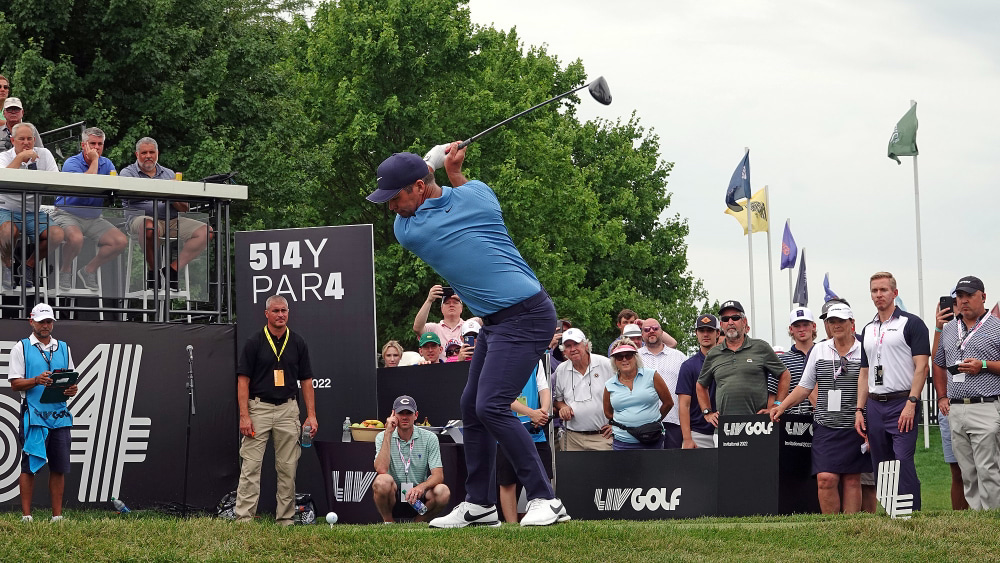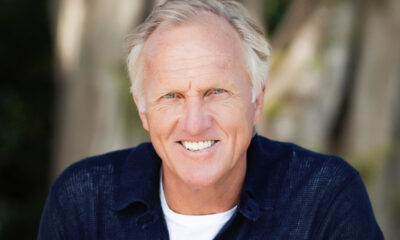Golf
The truth and lies about the war between LIV Golf and the PGA Tour. Business, vanity and the media in the lead
The bitter dispute between the PGA Tour and LIV Golf is also known as the “golf civil war”. This picture will probably resonate on the professional level of the greens for years to come, ultimately changing all of top-level golf. Part of this, of course, is the media wars, with one side publicly spitting on the other.

The bitter dispute between the PGA Tour and LIV Golf is also known as the “golf civil war”. This picture will probably resonate on the professional level of the greens for years to come, ultimately changing all of top-level golf. Part of this, of course, is the media wars, with one side publicly spitting on the other. Slander and hatred are a sad part of world golf these days.
In order to understand the whole issue more closely, we need to delve much deeper, much further behind the curtain of all that is going on. Although this is primarily about golf at first glance, it is at least equally about business.
A very interesting perspective was offered by long-time top coach and TV analyst Peter Kostis, who tried to get more into the heart of the conflict. He tried to offer what he considered a neutral perspective and looked at the whole issue from multiple sides. The big theme of his extensive blog was the workings of the media in this whole dirty game.
The global point is that the PGA Tour has a history of having very strong relationships with the media world, so together they have lashed out against the LIV. Kostis is making a claim that even some PGA supporters, who are rather neutral about the whole conflict, have already observed.
The point is that the LIV is in fact not only a sporting competitor for the PGA, but mainly a business competitor. So they’ve devised a strategy of making their own people think they’re doing something morally wrong when they watch the LIV. Since Saudi Arabia (the sponsor of LIV and a generous source of subsidies) is known as a country where human rights are widely violated.
“I think it’s important to unpick these things,” Kostis wrote in a lengthy blog post. He believes that the U.S., likewise, has a history of being involved in issues where human rights have been violated, both on its soil and in other parts of the world.
“Why should there be a double standard for Saudi Arabia? So if you’re using the terms`murderousregime’ or `sport-washing,’ you may need to rethink why you feel justified in saying that,” he added.
Moreover, the fact that the Saudis and the U.S. have an absolutely vital business relationship with each other, which extends in large part to the PGA Tour, doesn’t get mentioned.
“Keep in mind that it is crystal clear that Saudi Arabia as a nation would not be where it is without the help and support of the US for many, many decades – that is undeniable. The US and Saudi Arabia are inextricably tied and there is nothing the citizens of either country can do about it – that is simply a fact.
Most U.S.-based multinational corporations do business in Saudi Arabia – as do most of the major sponsors of the PGA Tour and professional golf (companies like FedEx, Citibank, Exxon Mobil, AT&T, etc.),” mentioning specific companies with ties to both the PGA and Saudi Arabia.
TWO METERS
In doing so, Saudi Arabia has now hosted and sponsored a Ladies European Tour (LET) team tournament in Jeddah, where one of the most criticised LIV events was recently played. Plus, it’s a team event – just for the record.
The Saudis are also to subsidise the prestigious Women’s PGA event in New York. Moreover, on the Donald Trump course, which the PGA often criticizes for its ties to the LIV. But there is nothing written by the media or the PGA against these tournaments, even though they are Saudi-subsidized events.
As an added bonus, there has been a lot of talk in recent years about the possibility of a new competitive Premier Golf League (PGL) competition that would have no direct ties to Saudi Arabia. Yet the PGA Tour, led by one commissioner, Jay Monahan, made sure that the competition never came into being and thus created competition for them at the same time.
The media pushback against the LIV is so obvious that it is first and foremost about business. The same commissioner then sent out an official statement referring to the LIV as the ‘Saudi Golf League’, refusing to acknowledge the organisation’s real name. This term has been used many times by the US media in recent months.
“Prior to the arrival of the LIV, the aforementioned (PGL) tried to follow all the rules and present their idea to the PGA Tour (very similar to the LIV model), but the Tour squashed the idea and it was never presented to the players to decide if they might be interested. The decision was made by PGA Tour commissioner Jay Monahan and other non-golfers on the PGA Tour board. Why?” asks Kostis in his text.
Despite strong opposition from the PGA, the LIV is slowly gaining ground and, according to many involved, will continue to do so: “ThePGA Tour has had all the best players in the world for the last 20 or 30 years,” Phil Mickelson said recently. “That will never happen again. LIV Golf is here to stay,” he added with conviction.
“When you have a monopoly on the highest level of golf in the world, part of your job is to maintain control and keep that monopoly in place to serve the current interests of the Tour. That’s how monopolies work – just look at history. I understand that, but times are changing,” the impartial TV golf analyst added.
Source:: medium.com












